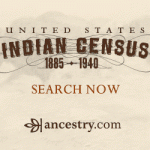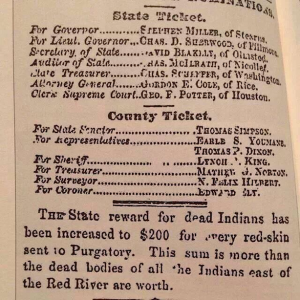We have previously written about how disenrollment financially ruins affected tribal members. Now consider how disenrollment can cause financial ruin to those tribes engaged in the colonialist practice. In 2013, Jared Miller wrote a foretelling piece for Indian Country Today Media Network, titled "Disenrollment is Bad for the Bottom Line":
"Disenrollment is a business matter. That’s because tribal governments abandoning members en masse will harm their own bottom line by engendering negative media and investor perceptions. More critically, they threaten the bottom line of Indian businesses everywhere. . .
Ugly battles like the one at Nooksack have potential to deeply affect tribes’ bottom lines. That’s partly because non-Indians may view such controversies as indicators of greed and corruption. Investors may also conclude that partnering with a tribal government engaged in abandoning its own citizens is not worth the risk to investment."
Now 2 1/2 years after starting a mass disenrollment campaign against the Nooksack 306, the Nooksack Tribal Council is shuttering one of its casinos---severing one of its economic lifelines, along with Tribal ancestral lines.
Perhaps that is because the Tribal Council axed various Nooksack 306 tribal members who helped manage Nooksack's gaming enterprise and keep it well into the black for the last several years; or because the Tribal Council invited an NIGC investigation into gaming revenue distributions that violate IGRA.
Or because, as reported by the Bellingham Herald, "the tribal council was too preoccupied with a controversial effort to disenroll hundreds of tribal members" to properly run the Tribe or its businesses.
"Apparently, the internal strife of expelling tribal members brought all other government affairs to an extreme slowdown."
The same financial fate has met the Picayune Rancheria of Chukchansi Indians, which "has been disenrolling members for decades" for sake of larger Indian gaming revenue per-capita distributions to remaining tribal members, and last year witnessed a federal judge shutter its lucrative casino.
Not only are both the enrolled and disenrolled Chukchansi Indians now suffering financially---the latter far more harshly than the former---but "the casino closure has significantly affected Madera County’s economy and the nearby communities." There is no telling when Chukchansi's casino will reopen.
Indeed, disenrollment is bad for the bottom line--everyone's bottom line. It is also karmic.
Gabriel “Gabe” Galanda is the Managing Partner at Galanda Broadman. He belongs to the Round Valley Indian Tribes. Gabe can be reached at 206.300.7801 or gabe@galandabroadman.com.















